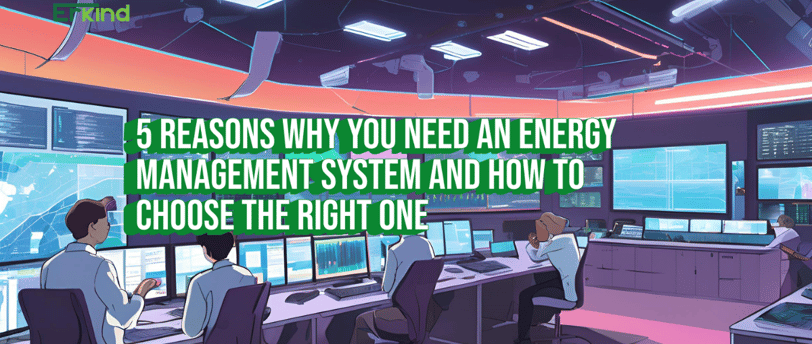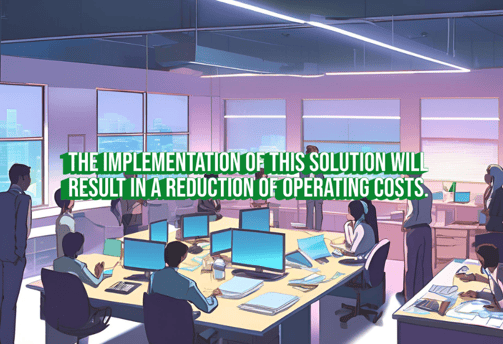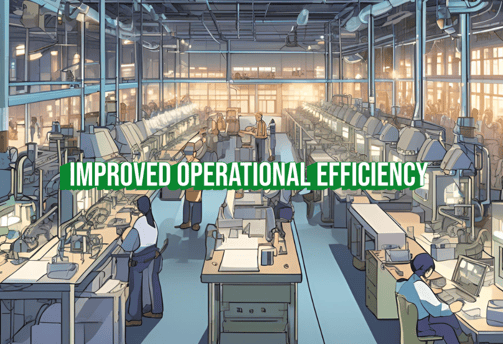5 Reasons Why You Need an Energy Management System and How to Choose the Right One
An Energy Management System (EMS) is a systematic approach to improving energy efficiency in an organization. Implementing an EMS allows businesses to reduce operational costs while also contributing to environmental conservation.
ENERGY MANAGEMENT SYSTEM
Farid
12/30/20243 min read


An Energy Management System (EMS) is a systematic approach to improving energy efficiency in an organization. Implementing an EMS allows businesses to reduce operational costs while also contributing to environmental conservation.
Table of Content
The Following Are The Top Five Reasons Why You Should Implement EMS
How to choose the right energy management system
Conclusion
The following are the top five reasons why you should implement EMS:
The implementation of this solution will result in a reduction of operating costs.
Lower energy costs: By optimizing your energy usage, you can achieve a notable reduction in your electricity, gas, or other fuel costs.
Identify areas where energy is being wasted. Energy Management System identifies areas where energy is being wasted, enabling prompt corrective action.




Carbon Emissions Reduction Plan:
Cleaner Environment: By reducing your energy consumption, you play an important role in reducing greenhouse gas emissions, which contribute to global warming.
Regulatory Compliance: Many governments have enacted regulations requiring companies to reduce their carbon emissions. SMEs can assist you in meeting these requirements.


Improved operational efficiency:
More optimised production: Energy management systems help optimise production processes, improving efficiency and productivity.
Better asset management: By monitoring energy consumption across different assets, you can manage assets more effectively.


Corporate image enhancement
Environmental awareness: Companies that implement an energy management system demonstrate a commitment to environmental sustainability, which can improve the company's image with consumers and other stakeholders.
Competitive advantage: Being an energy efficient company can provide a competitive advantage in the marketplace.


Preparing for the future:
Rising energy prices: Energy prices are likely to continue to rise. By implementing an energy management system, you will be prepared for future energy price fluctuations.
New technologies: An energy management system can integrate the latest technologies, such as renewable energy and automation systems, to improve energy efficiency.
How to choose the right energy management system
Identify your needs: Define the specific goals you want to achieve by implementing an energy management system, such as reducing costs by X% or reducing carbon emissions by Y%.
Evaluate technologies: Consider the different energy management system technologies available, such as building control systems, energy sensors and data analysis software.
Select a service provider: Select an experienced and reputable energy management system service provider.
Consider costs: Compare the implementation and operational costs of different energy management system solutions.
Integration with existing systems: Ensure that the energy management system you choose can be integrated with your company's existing systems.
Conclusion
It is clear that implementing an Energy Management System represents a long-term investment that offers numerous advantages. By selecting the most appropriate system and conducting a successful implementation, organisations can realise substantial cost savings, minimise their environmental impact and enhance their operational efficiency.
Identify your needs: Define the specific goals you want to achieve by implementing an energy management system, such as reducing costs by X% or reducing carbon emissions by Y%.
Evaluate technologies: Consider the different energy management system technologies available, such as building control systems, energy sensors and data analysis software.
Select a service provider: Select an experienced and reputable energy management system service provider.
Consider costs: Compare the implementation and operational costs of different energy management system solutions.
Integration with existing systems: Ensure that the energy management system you choose can be integrated with your company's existing systems.
Baca artikel kami lainnya!
Saran Bacaan
Location
Indonesia Stock Exhange Tower 1 Level 3 Unit 304 Jl Jendral Sudirman KAV 52-53, Senayan, Kebayoran Baru, Kota Adm Jakarta Selatan DKI, 12190
Follow Our Social Media
Contacts
021-5890 5002
admin@erkind.com


